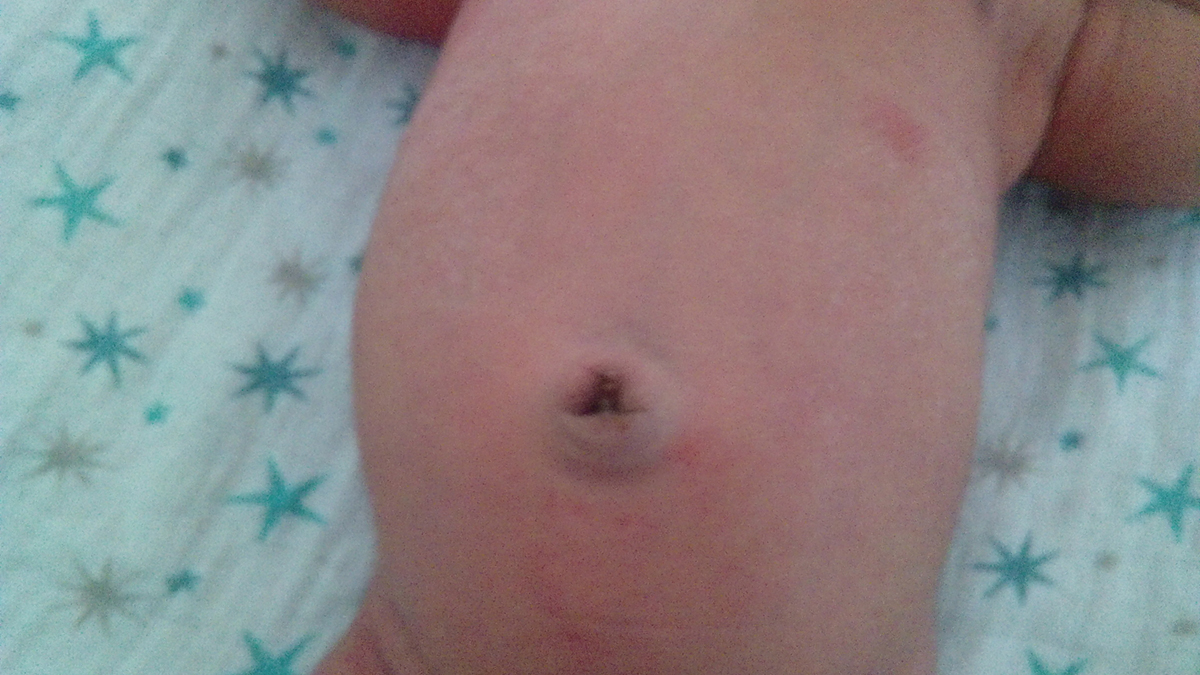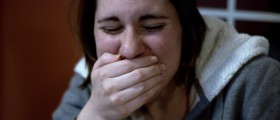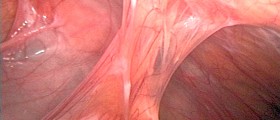
Projectile vomiting can be defined as sudden and forceful ejection of the stomach content. It is normal for infants to burp and vomit a bit after meals. This way the excess of air is expelled from the stomach and a child will not ingest the air that may eventually cause cramps. But if an infant suffers from projectile vomiting this may point to the presence of certain underlying conditions which require further investigation and consultation with a doctor.
Causes of Projectile Vomiting in Children
In some cases projectile vomiting in children is associated with gastroesophageal reflux. In this condition the sphincter muscle between the esophagus and the stomach does not close properly and allows the food to regurgitate from the stomach to the esophagus. Another cause of projectile vomiting in infants is pyloric stenosis. In pyloris stenosis there is a narrowing of the opening from the stomach to the intestines. The muscle that surrounds this opening is hypertrophic and does not allow the stomach to empty hence all the food regurgitates from the stomach.
Furthermore, the condition can develop due to food poisoning. Any kind of food (if contaminated) may cause food poisoning and subsequent projectile vomiting. Food poisoning is caused either by viruses or bacteria. Apart from projectile vomiting an infant additionally suffers from nausea, diarrhea, abdominal cramping and fever.
Projectile vomiting can also develop due to intestinal obstruction. This medical condition apart from vomiting features with abdominal pain, problems with bowel movement and passing gas. In case of intestinal obstruction the stomach content can be bilious and green or even yellow in color.
And finally, projectile vomiting in infants may be a symptom of hepatitis. Children suffering from hepatitis will apart from projectile vomiting experience upper right abdominal pain and their skin will become yellow as a consequence of jaundice.
Presentation of Projectile Vomiting in Infants
The condition features with vomiting of almost everything taken orally (both food and fluids). Additional symptoms may include increased irritability, lethargy and refusal of an infant to eat. The child may also have repeated impulse to vomit. Prolonged and repeated vomiting may eventually cause dehydration. The skin and visible mucus membranes become dry.
Treatment from Projectile Vomiting in Infants
It is essential for all children suffering from projectile vomiting to be examined by a medical doctor. The treatment for projectile vomiting basically depends on the underlying condition.
It is essential for an infant to take plenty of fluids either orally or if this is not possible intravenously. Sometimes children are prescribed certain medications and finally, pyloric stenosis and intestinal obstruction are treated surgically.

















Your thoughts on this
Loading...